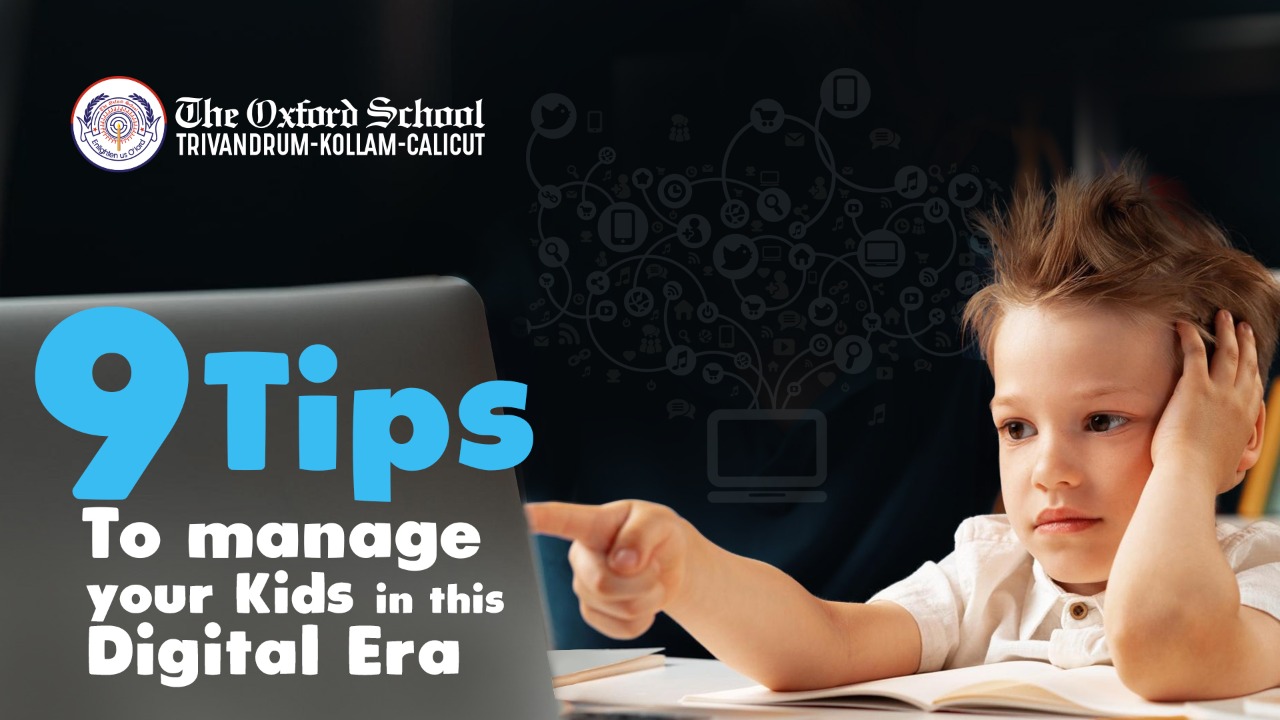Unfortunately, we are at a period in history where we are raising tech-savvy children while having very little digital understanding of its pitfalls ourselves. Almost every parent is struggling to keep up with this development, while children appear to be aware of all the latest gadgets and apps accessible. Even if you don’t always have the tech answers they need, there are ways to remain ahead of the game and help children learn healthy principles of virtual use.
Here are 9 tips on guiding your child to responsibly use technology:
1.Talk about the boon & bane
The best way to keep up with what’s going on in the tech industry is to communicate. You may not always be aware of the recent advancements in technology or the risks associated with them, but your children most likely are. Ascertain that they are aware that you are available to chat about anything they come across online. It’s a solid way to prevent problems from arising. Discussing the benefits and drawbacks with your children is an excellent approach. It also helps children develop a healthy perspective on technology use.
2.Lay out the Rules
Children should know exactly what is expected of them when it comes to their usage of technology. Screen time and usage for your child should be simple to follow and age-appropriate. Setting a limit and sticking to it encourages children to use technology responsibly as they get older. Encourage playtime since it boosts creativity. Keep screens out of family mealtimes, social gatherings, and children’s bedrooms. Charge devices outside of your child’s bedroom overnight to help him or her resist the need to use them while they should be sleeping. More family time, healthier eating habits, and improved sleep are all encouraged by these changes.
3.Explore the New Age
Both you and your child will benefit from learning more about technology. Take a look at what technology can accomplish for your community and the world at large. Learning about technology with your child improves communication and keeps you up-to-date on what they know and what you might like to grasp. Just remember to spend time with your children away from the computer. Parents might be just as liable as their children when it comes to excessive screen usage.
4.Guidance with School
As they prepare for fast-paced careers, kids are being exposed to more and more technology at school. Assist them with schoolwork to learn more about what the school is teaching about technology. It also keeps you up-to-date on what tech kids need to know in order to do their schoolwork, as well as what screen time is suitable based on school workload.
5.Educate about Social Media Profiles
Examine your child’s social media accounts and educate them on the significance of privacy settings and how to stay safe online. Demonstrate to your children how real-life conversations differ from those conducted online. Instill in them the values of privacy and the perils of predators. Teach children how to avoid being bullied online and how to deal with strangers. Teenagers should be aware that after content has been shared with others, they will not be able to entirely delete it. They must be informed that fraudsters frequently contact and exploit minors through social networking, chat rooms, e-mail, and online gaming.
6.Opportunity to Bond
Time spent in front of a screen does not have to be time spent alone. Play, watch, and engage with your children when they’re using screens. It promotes bonding, social engagement, and learning. You’ll be able to introduce and contribute your own life experiences, thoughts, and advice. Interact with them so you can appreciate what they’re doing and become a part of it, rather than just watching them on the internet.
7.Serve as an Example
You should educate and model online kindness and decency. Because children are superb imitators, you should limit your own media intake. In fact, interacting, cuddling, and playing with your children rather than glaring at a screen will make you more available to and connected with them.
8.Technology is never an Emotional Comforter
Although digital media can be highly helpful in keeping children calm and quiet, it should not be the primary way they learn to do so. Children must be taught how to recognise and control intense emotions, come up with activities to relieve boredom, or calm down by breathing, talking about solutions, and finding other methods to redirect emotions.
9.Forgive them for mistakes
Some parents obsess over their children’s use of technology. Not all technology is evil, and no one is trying to harm you or your children. When it comes to the media, children will make mistakes. Try to respond to mistakes with empathy and convert them into educational moments. Parents must also closely examine their children’s behaviour and, if necessary, seek expert assistance.
The key point is that nothing is more impactful than simply being involved in your child’s life. Meanwhile, you must monitor your children’s use of technology and provide them with opportunities to learn. Maintain open channels of communication so that they know they can come to you with any issues they are unaware of or are concerned about. That’s how you’ll enlighten your children and keep them safe in this digital age.




